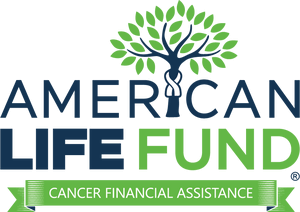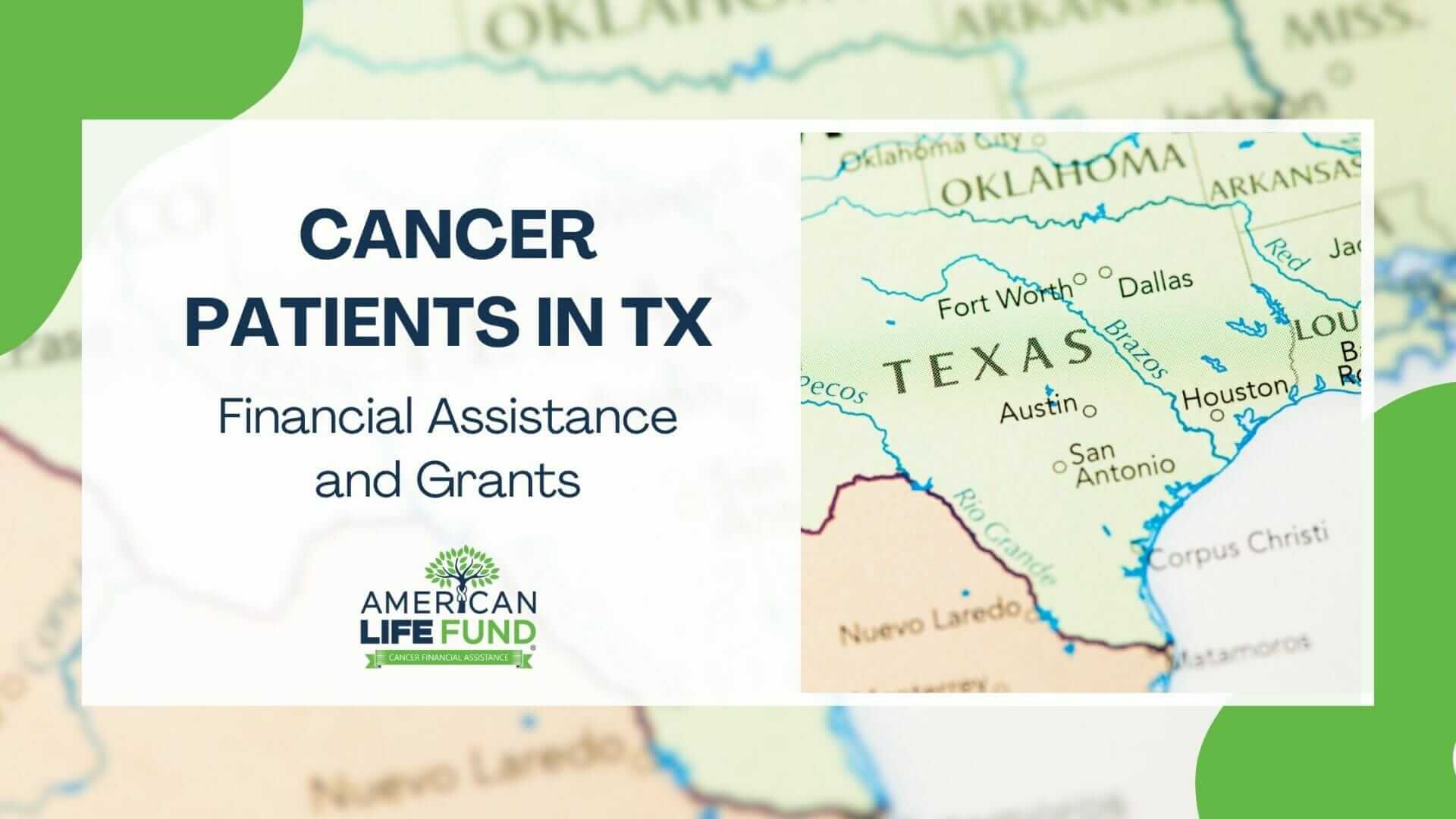Cancer is not a diagnosis anyone is prepared to receive, and the journey that follows can be both emotionally and financially challenging. In Texas, nearly 30% of families facing cancer experience significant financial stress, but there are resources available to help.
Programs such as Medicaid, Medicare, and the Texas Cancer Prevention and Research Institute offer assistance with medical bills, medications, and even transportation and lodging. Additionally, organizations like CancerCare and the American Cancer Society provide further support and resources.
Taking proactive steps can make a significant difference: exploring these resources early, keeping detailed records, and consulting with healthcare professionals for guidance can be helpful. For those facing immediate financial needs, viatical settlements provide an option to sell a life insurance policy for quick funds, offering a much-needed financial cushion. Know that you are not alone during this process, there are resources and support systems in place to assist you during this unimaginable time.
What Can Cancer Patients Expect When Looking For Financial Assistance in Texas?
Cancer treatment in Texas can be financially challenging, but various assistance options are available to help manage these costs. Understanding the financial landscape is crucial for patients and their families.
Understanding the Costs:
- Initial Diagnosis and Testing: The costs can quickly add up, often ranging from $1,000 to $10,000 or more, depending on the complexity of the tests and the need for specialized imaging.
- Treatment Expenses: Treatments such as surgery, chemotherapy, and radiation can be prohibitively expensive. For example, a course of chemotherapy can cost between $10,000 and $200,000, depending on the type and duration of treatment. Radiation therapy may add another $10,000 to $50,000.
- Medications: The cost of cancer medications can vary widely, with some new drugs costing $10,000 or more per month. Even generic drugs and supportive medications can strain a patient’s budget.
- Additional Costs: Beyond medical treatment, there are often expenses for travel, lodging, and lost income if the patient or a caregiver has to take time off work.
Viatical Settlements in Texas
Cancer treatment often comes with unexpected and significant expenses that can quickly overwhelm any budget. For many patients, finding a way to cover these costs is necessary. One valuable option is a viatical settlement, which provides a unique financial solution for those in need.
What is a Viatical Settlement?
A viatical settlement involves selling your life insurance policy to a third party for a lump sum cash payment. This payment is often significantly more than the policy’s cash surrender value, though less than the full death benefit. It’s a practical option for those facing high medical bills, as it offers immediate access to funds.
Eligibility Criteria for a Viatical Settlement:
To qualify for a viatical settlement, the following conditions are generally required:
- Serious Health Condition: The policyholder must have a life-threatening illness, such as cancer, ALS, or Alzheimer’s disease. The type and stage of the disease are factors in determining eligibility.
Policy Age: The life insurance policy should typically be at least two years old. This duration ensures the policy has accumulated in order to legally sell it. Policy Value: The policy must have a face value of $200,000 or more. This minimum value ensures the policyholder can access a substantial lump sum payment through the viatical settlement.
Policy Type: Most types of life insurance policies are eligible, including whole life, term life, universal life, group life, and joint life insurance policies.
The Benefits of a Lump Sum Payment:
- Immediate Financial Relief: The lump sum payment from a viatical settlement can be used to cover a wide range of expenses, from medical bills to daily living costs. This immediate influx of cash can ease the financial stress, allowing patients to focus more on their treatment and less on financial worries.
- Flexibility in Use: Unlike some financial aid programs that may have restrictions on how funds can be used, the money received from a viatical settlement is unrestricted. This means patients can allocate funds according to their most pressing needs, whether that’s medical expenses, paying off debts, covering the cost of travel and lodging during treatment, living expenses, or anything else you desire or need covered.
- Peace of Mind: Knowing that you have a financial cushion can provide significant emotional relief. For many, the ability to access funds quickly and without the stress of financial aid applications is invaluable.
See if your policy qualifies and get cash now!
Financial Assistance Resources in Texas
Here is a list of resources available for financial assistance for cancer patients in Texas:
- Medicaid
- Overview: Medicaid is a joint federal and state program providing healthcare coverage to low-income individuals and families.
- Eligibility: Eligibility is based on income, household size, and other factors. In Texas, adults with dependent children, pregnant women, seniors, and individuals with disabilities may qualify.
- Assistance Amount: Medicaid covers a comprehensive range of medical services, including cancer treatments, hospital stays, doctor visits, and prescription medications. Coverage amounts vary based on individual medical needs.
- Application: Apply through the Texas Health and Human Services Commission.
- Medicare
- Overview: Medicare is a federal program offering healthcare coverage to individuals aged 65 or older, certain younger individuals with disabilities, and those with End-Stage Renal Disease.
- Eligibility: Primarily for individuals aged 65 or older; younger individuals may qualify based on disability status.
- Assistance Amount: Medicare Part A covers hospital services, Part B covers outpatient services, and Part D covers prescription drugs. Coverage percentages and out-of-pocket costs depend on the specific plan and services utilized.
- Application: Apply through the Social Security Administration.
- Texas Cancer Prevention and Research Institute (CPRIT)
- Overview: Texas Cancer Prevention and Research Institute (CPRIT) funds cancer research and prevention programs, including services for underserved populations.
- Eligibility: Varies by program; many focus on providing services to uninsured or underinsured individuals.
- Assistance Amount: CPRIT allocates grants to organizations that offer free or low-cost cancer screenings and prevention services. Specific assistance amounts depend on the program and services provided.
- Application: Services are accessed through organizations funded by CPRIT.
- American Cancer Society (ACS)
- Overview: The American Cancer Society offers various programs and services to support cancer patients, including financial assistance for transportation, lodging, and medication costs.
- Eligibility: Patients undergoing active cancer treatment; specific programs may have additional criteria.
- Assistance Amount: For example, the ACS’s “Road To Recovery” program provides free transportation to treatment centers. The “Hope Lodge” program offers free lodging for patients traveling away from home for treatment.
- Application: Contact the ACS at 1-800-227-2345 or visit their website.
- Susan G. Komen Foundation
- Overview: Susan G. Komen Foundation Provides financial assistance for breast cancer screening, diagnostics, and treatment for uninsured and underinsured individuals.
- Eligibility: Individuals diagnosed with breast cancer or undergoing screening; specific criteria vary by program.
- Assistance Amount: The Komen Treatment Assistance Program offers financial aid up to $300 per patient per year for eligible expenses, including medication, transportation, and childcare.
- Application: Apply through the Komen Foundation’s website or by contacting local affiliates.
- The Leukemia & Lymphoma Society (LLS)
- Overview: Offers financial assistance for medication and treatment costs for blood cancer patients.
- Eligibility: Patients diagnosed with leukemia, lymphoma, myeloma, or related blood cancers.
- Assistance Amount: The Leukemia & Lymphoma Society Co-Pay Assistance Program provides up to $2,500 annually to help with insurance premiums and co-pays.
- Application: Apply through the LLS website or by calling 1-877-557-2672.
- Patient Access Network (PAN) Foundation
- Overview: Provides financial assistance for medication and treatment costs for individuals with specific conditions, including cancer.
- Eligibility: Patients must have insurance and meet income guidelines (household income at or below 400% of the Federal Poverty Level).
- Assistance Amount: Assistance amounts vary by disease fund; for example, the Patient Access Network (PAN) Foundation offers up to $10,000 per year for metastatic breast cancer patients.
- Application: Apply through the PAN Foundation’s website or by calling 1-866-316-7263.
- Texas Health and Human Services
- Overview: Offers various programs and services for low-income individuals and families, including healthcare coverage and financial assistance.
- Eligibility: Varies by program; generally based on income, household size, and specific needs.
- Assistance Amount: Programs like the Comprehensive Energy Assistance Program (CEAP) can assist with utility bills, while the Supplemental Nutrition Assistance Program (SNAP) provides funds for food.
- Application: Apply through the Texas Health and Human Services website or local offices.
- The Assistance Fund
- Overview: Provides financial assistance for medication and treatment costs for individuals with specific conditions, including cancer.
- Eligibility: Patients must have insurance and meet income guidelines (household income at or below 400% of the Federal Poverty Level).
- Assistance Amount: Assistance amounts vary by disease fund; for example, The Assistance Fund offers up to $15,000 per year for certain cancer patients.
- Application: Apply through The Assistance Fund’s website or by calling 1-855-845-3663.
Tips For Financial Assistance For Cancer Patients in Texas
If you’re a cancer patient looking for financial assistance in Texas, here are some tips that may help:
- Start early: Begin your search for financial assistance as early as possible, as many programs have application deadlines, and processing times can be lengthy.
- Research your options: Take the time to research the different programs available to you and compare the eligibility requirements, benefits, and application processes.
- Keep detailed records: Keep copies of all paperwork related to your cancer diagnosis and treatment, including medical bills and insurance statements. You may need these documents to prove your financial need.
- Reach out for help: Don’t be afraid to ask for help or seek guidance from organizations specializing in assisting cancer patients with financial aid.
- Be persistent: Applying for financial assistance can be lengthy and complicated. Be prepared to follow up regularly and advocate for yourself.
- Consider non-financial assistance: Some organizations may offer non-financial support, such as transportation services or counseling, which can also benefit your cancer journey.
By following these tips, cancer patients in Texas can find the financial assistance they need to manage the costs associated with their treatment and focus on their recovery.
Conclusion
Finding financial support during cancer treatment may feel impossible, but know that you are not alone. There are numerous options available, from grants and scholarships to insurance assistance programs, all designed to help ease the burden. While some organizations provide targeted support for cancer patients, others offer broader aid for those in need.
Managing multiple assistance programs can be extremely time-consuming. Viatical settlements provide a more straightforward solution, offering a lump sum payment that can be used for any immediate financial needs. This approach helps alleviate the stress of navigating various programs, allowing you to focus on your health and well-being.
If you’re seeking an immediate cash offer for your life insurance policy, contact us today. At American Life Fund, we’re here to answer all your questions and provide the guidance you need. Our mission is to ease the financial hardship of cancer treatments, so you can prioritize your recovery and focus on what truly matters.
FAQ For Financial Assistance For Cancer Patients in Texas
What Types of Financial Assistance Are Available for Cancer Patients in Texas?
Cancer patients in Texas may qualify for several financial assistance programs, including federal and state options like Medicaid, Medicare, and the Children’s Health Insurance Program (CHIP) for eligible children. Additionally, Texas has the Cancer Prevention and Research Institute (CPRIT), which funds cancer research and provides services to underserved groups. National organizations like CancerCare, the American Cancer Society, and other local health and human services agencies also offer support for treatment-related expenses.
How Can I Determine Eligibility for Financial Assistance Programs in Texas?
Eligibility requirements vary by program. Medicaid, Medicare, and CHIP have specific income and asset limits, while other organizations may have different criteria. It’s helpful to speak with a financial counselor or social worker who can guide you through options that best suit your situation, particularly if your cancer diagnosis affects your ability to work or cover treatment costs.
What Types of Expenses Can Financial Assistance Programs in Texas Cover?
Many programs assist with medical bills, medication costs, transportation, lodging, and more. Some financial aid can also help with income loss due to caregiving responsibilities. If you have health insurance, aid programs may cover additional costs not covered by your plan, helping manage expenses related to cancer care.
Can I Receive Financial Assistance if I Have Health Insurance?
Yes, financial assistance programs are available to help with out-of-pocket expenses, deductibles, and copays not covered by insurance. This can be helpful in managing the high costs of cancer treatment, from medication to travel, which often strain household budgets.
Are There Emotional Support Resources Available for Cancer Patients and Their Families?
Yes, organizations such as the American Cancer Society and CancerCare provide emotional support through counseling, support groups, and mental health services. These resources can help patients and families cope with the emotional aspects of a cancer journey.






